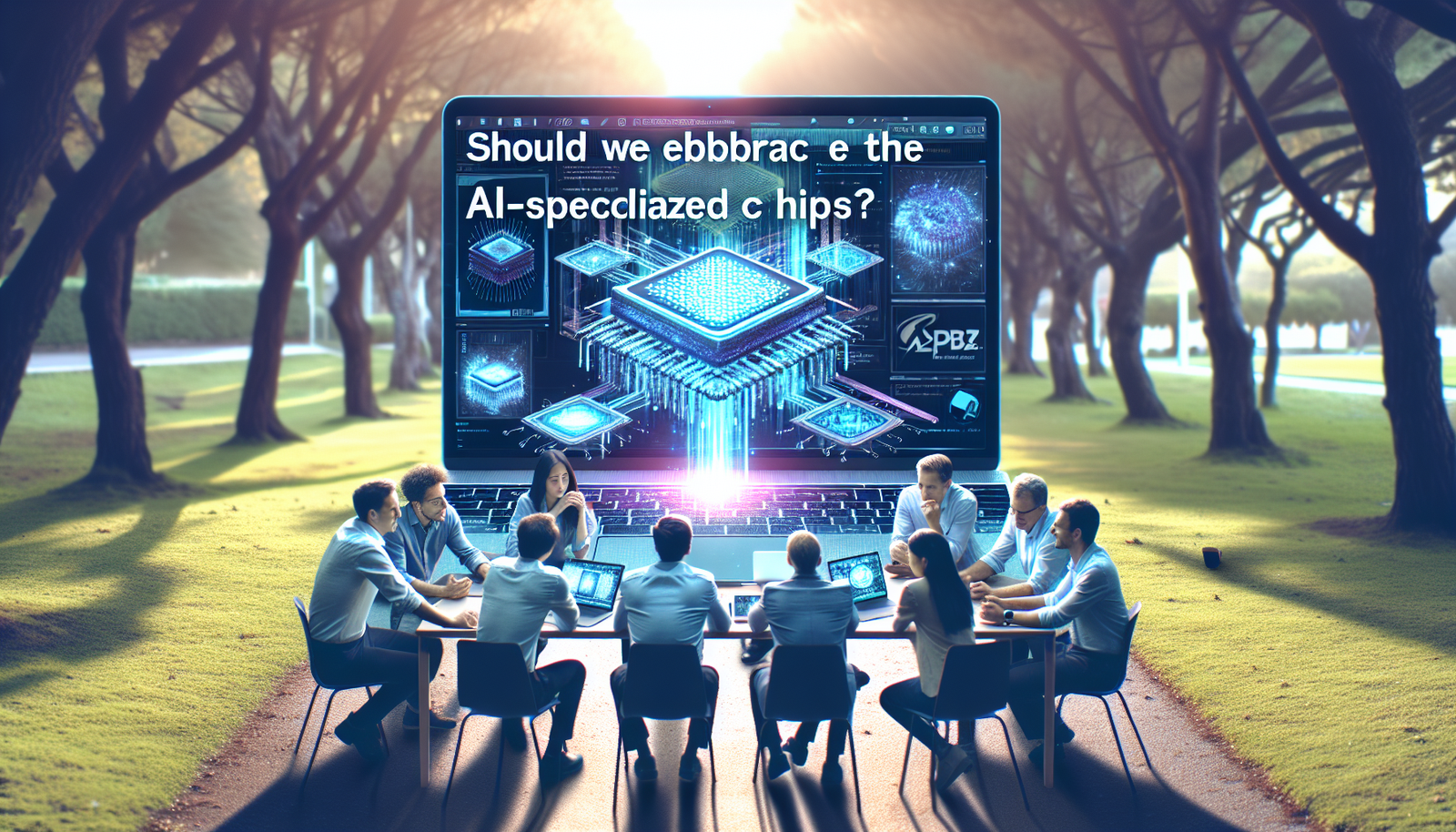The rapid advances of *new specialized chips for AI* are redefining the current technological landscape. Companies like Groq, Rivos, and Cerebras are emerging with innovative solutions that appeal to market players. The question of adopting these processor orthoses remains pressing for companies eager to optimize their performance. In the face of increased competition, staying at the forefront of technology requires strategic thinking about the integration of these new architectures. The stakes go beyond mere raw power; a *smart adaptation* of resources is necessary to fully leverage this innovation.
The new AI chips: a technological turning point
The rise of specialized chips for artificial intelligence (AI) is sparking lively debate among industry professionals. Companies like Groq, Rivos, and Cerebras are emerging in the market, promising significant advancements over conventional chips. Their adoption could radically transform the processing and inference capabilities of AI models.
Groq and its innovative vision
Groq, a California startup, recently made headlines by raising $640 million to strengthen its position in this emerging market. The chips developed by Groq focus on the rapid inference of AI models, competing notably with Nvidia. Their unique architecture allows for processing colossal data volumes at a dizzying speed, thus optimizing the performance of AI applications.
Cerebras: the power of scale
Cerebras stands out with its radically different approach, designing chips that surpass any competition in size in the market. This company managed to triple its revenue during its IPO, demonstrating the growing appetite for its technologies. Cerebras chips are particularly well-suited for complex deep learning tasks, offering unmatched processing capabilities.
Rivos: the rise of a challenger
Rivos, although less known, is also attracting attention with a pre-launch funding of $250 million. Rivos chips specialize in energy consumption reduction while maintaining high performance. This approach could appeal to companies concerned about their carbon footprint.
Adoption considerations
The question of adopting these new chips is not solely about performance. The costs related to implementation, integration into existing infrastructures, and the learning curve pose potential barriers. Companies across all sectors must assess whether the transition to these technologies justifies the required investments.
Impacts on the semiconductor market
Competition is intensifying, particularly with established companies like Nvidia and Intel, which are striving to maintain their dominant positions. Nvidia, for instance, is exploring alliances like the one with Foxconn to build an artificial intelligence supercomputer and revolutionize its production lines. These initiatives aim to preserve the technological lead in the face of the emergence of new companies.
Strategies for risk mitigation
The AI sector is evolving rapidly, and companies must also consider the implications of dependencies on specific suppliers. Diversifying sources and adopting open-source software can help reduce the risks of technological lock-in. This trend is already observable among leading companies like Cerebras and Groq, which adopt practices that promote agility.
The silent case of China
Chinese companies, like Huawei and Baidu, are also entering this market by developing local alternatives to AI chips. For example, Huawei recently unveiled its new AI chips intended to replace Nvidia, showcasing a desire to reduce dependency on American tech giants.
Opportunities and challenges ahead
The new AI chips offer enormous potential to revolutionize various sectors, ranging from healthcare to automotive. However, this innovation comes with inherent challenges related to ethics and regulation. Economic actors must navigate this complex environment carefully, considering the societal implications of their use.
Frequently asked questions about new AI chips
What are the advantages of switching to specialized AI chips like Groq, Rivos, and Cerebras?
Specialized chips offer increased performance for inference calculations, improved energy efficiency, and reduced latency, making them ideal for demanding AI applications.
How do I choose between different startups like Groq, Rivos, and Cerebras for my AI needs?
It is essential to evaluate technical specifications, energy savings, software support, and feedback from other users to determine the best option suited to your specific use.
Are the new AI chips compatible with existing infrastructures?
Most new chips are designed to be compatible with existing systems, but it is advisable to check the specifications and consider the necessary software integration before making a change.
What is the cost of adopting new AI chips like those from Groq or Cerebras?
Costs can vary significantly depending on the model and purchase volume. Generally, specialized chips may represent a high initial investment but often offer long-term savings due to their performance and efficiency.
Are they really more effective than traditional GPUs for AI tasks?
Yes, in many cases, specialized chips outperform traditional GPUs in terms of processing power and optimization for AI algorithms, particularly for inference tasks.
How can the adoption of AI chips revolutionize business processes?
Adopting these chips can significantly improve operational efficiency, reduce processing times, and enable rapid innovations, allowing companies to stand out in a competitive market.
What is the typical lifespan of new AI chips?
The lifecycle of AI chips can vary, but in general, they are designed to remain competitive for several years before a significant upgrade is needed.
Are there redundancies or unnecessary features in new AI chips that seem promising?
It is important to examine the features offered by each model, as some may not be necessary for all use cases. A careful assessment of actual needs can avoid unnecessary costs.






